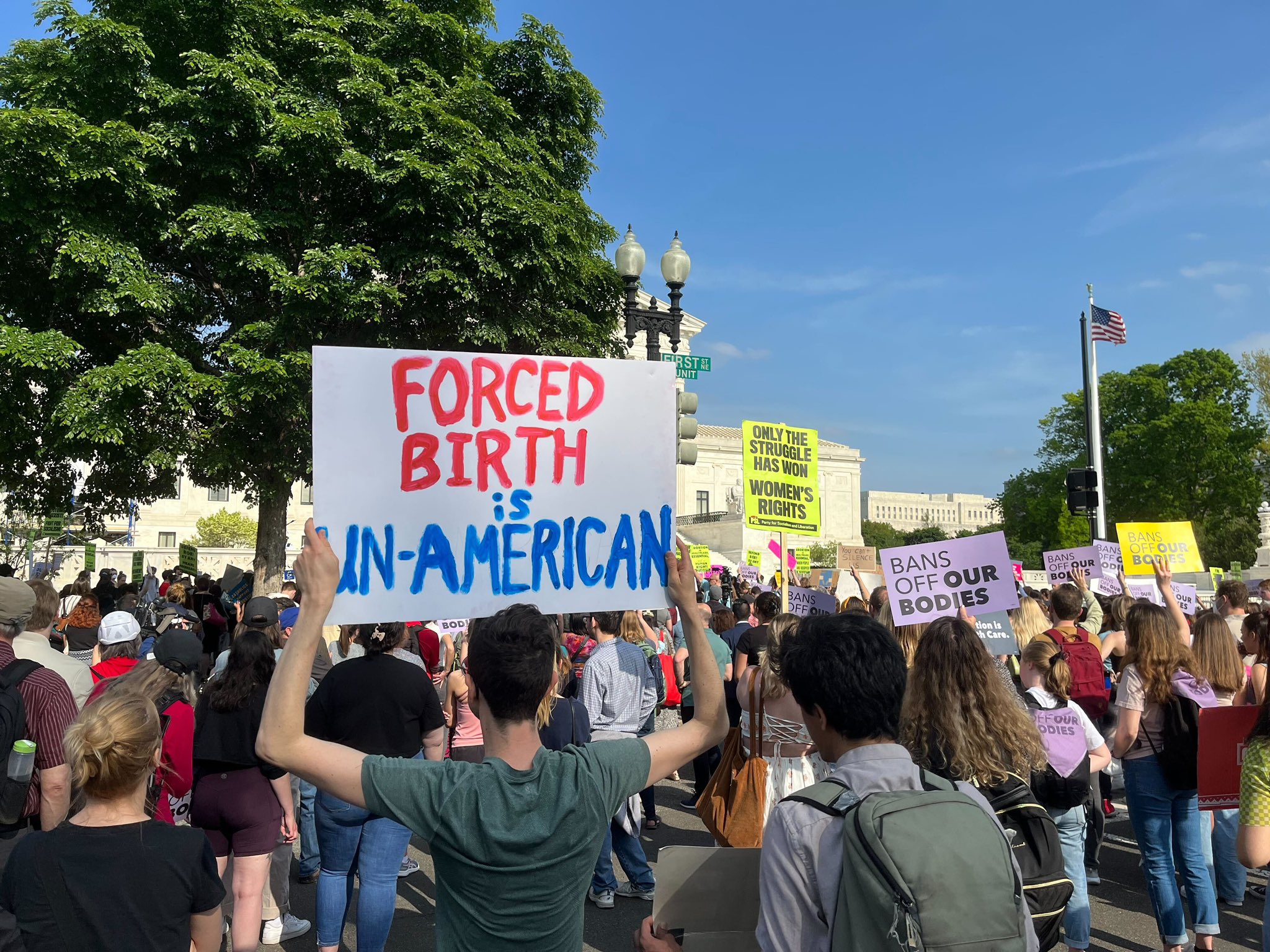Overturning Roe v. Wade Will Lead To A Frightening Future

The leaked draft opinion from Associate Supreme Court Justice Samuel Alito is a frightening glimpse into what could become of the landmark Roe v. Wade decision. The Roe v Wade case, later reinforced in a 1992 case, Planned Parenthood v Casey, guaranteed federal protections and access to abortions. The leaked draft overturns these protections, placing protected access to abortions in the power of states to decide on a state-by-state basis. We are already seeing states with extremely conservative governments move to restrict and outright ban access to abortions. Abortion bans are systemic discrimination and racism in action and the impact of this decision would be profoundly harmful, falling hardest on people who already face discriminatory obstacles to health care and human rights—particularly Black, Indigenous, and other people of color, disabled people, people in rural areas, young people, undocumented people, and those struggling with economic insecurity. This Supreme Court would once again fail people of color and those living on lower incomes.
Family Values @ Work’s core issues intersect with a post-Roe landscape in complex ways. The lack of paid family and medical leave and paid sick and safe days create logistical nightmares when combined with abortion restrictions. As state legislatures narrow the opportunities for accessing abortion care, it raises the stakes for working people without paid leave. Many will struggle to take time from work for doctor’s appointments and to travel to increasingly limited numbers of clinic options. Some may result in harmful and risky abortion procedures, compromising their own health and well-being without the adequate time they may need to heal. If they do have paid leave and can get an appointment at a clinic, the childcare crisis raises another barrier. Six in 10 women who seek abortions already have children, and the lack of affordable and accessible child care in most states creates yet another hurdle to accessing abortion.
Overturning Roe v. Wade isn’t just about abortion rights: This direct attack on cisgender women and transgender people is in line with this nation’s history of usurping our power over our own health and bodies. From coercive pregnancy during slavery, to mandated sterilizations of immigrants and disabled people, US policy has often permitted or promoted state control of reproduction as a way to forcibly shape the lives of people targeted for gendered oppression. This also compromises aging adults who may not want to have any more children. As our history has shown, leaving decisions about reproductive autonomy to state legislatures, as Justice Alito suggests, will likely produce devastating effects on individuals and families.
The Supreme Court seems to be signaling a willingness to turn back the clock on the progress that communities impacted by gender-based discrimination—like Black, Indigenous, and other people of color, disabled people, and LGBTQ+ people—have made toward freedom, equity, and self-determination. While his opinion is enraging, the truth is that abortion, although restricted in certain states, is still legal in the United States today. Should this opinion become final (a decision is expected in June), it would have a devastating impact on cisgender* women’s and transgender people’s health, reproductive justice, bodily autonomy for communities impacted by gender-based violence, and economic mobility. It will needlessly imperil the lives of those who can get pregnant and cede what little power cisgender women and transgender people had over their bodies back to the white cisgender men in control, possibly for generations. Abortion rights are constitutional rights and must be fiercely protected. If finalized as written, the decision to overturn Roe would lay the groundwork for governmental interference in our personal lives in many ways, including possibly overturning the Obergefell marriage equality decision and giving legislators renewed control over what we do in our private bedrooms should Lawrence v. Texas fall, too.
This is another reminder that we need more representation in all levels of government. We need people who look like us, believe deeply in our values, and respect the dignity of all to be in all levels of decision-making power. The irony is not lost on us that the opinion is authored by a 72-year-old white male Justice who has never had to consider such a weighty decision and imposition on his ability to decide for his own body. The Family Values @ Work network will not stop our fight for gender, racial, and economic justice and the liberation of all people, including people seeking to control their destinies by accessing abortion.
*“Cisgender” is an adjective used when someone is born with a perceived “female” reproductive system and also identifies as a woman; or when someone is born with a perceived “male” reproductive system and also identifies as a man.
**Featured photo taken by Sammy Chavin of Family Values @ Work